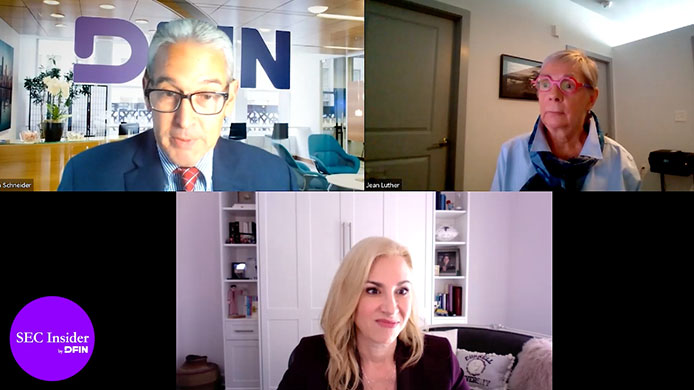Investment Funds Explore Name Changes as SEC Takes Aim at Greenwashing
November 15 2023 / 2 Minute Read
Ethical investing has soared in popularity as awareness of environmental, social and governance (ESG) factors has grown among both retail and...
Our Capabilities
We believe the financial services ecosystem should seamlessly interconnect, without compromising quality or cost efficiency.
DataXChange
Fast-track your transformation and innovation with BetaNXT DataXChange, our cloud-based, real-time data management platform.
Who We Serve
BetaNXT invests in platforms, products, and partnerships to accelerate growth for the ecosystem we serve. Our connective approach empowers clients to deliver a comprehensive, front-to-back securities processing, tax, and investor communications solution.
Who is BetaNXT?
We invest in platforms, products, and partnerships to accelerate growth for the ecosystem we serve. Our connective approach empowers clients to deliver a comprehensive solution.
Leadership TeamEngage With Us
In November 2021, the Securities and Exchange Commission (SEC) approved a new rule that requires organizations to share proxy cards for contested events. This ruling came into effect on August 31, 2022. Mediant's technology was updated well in advance to ensure clients are compliant with its requirements.
The rule requires that proxy cards feature all director candidates, both those endorsed by the company and those endorsed by the challenger. As a result of this change, all shareholders will be able to cast votes for a combination of nominees across both slates, a privilege previously available only to investors attending meetings in person.
Under the new rule, which was first proposed in 2016, dissidents are required to notify registrants of their intent to solicit proxies and provide the names of their nominees no later than 60 calendar days before the anniversary of the previous year's annual meeting. By contrast, registrants need to provide dissidents with their nominee's names no later than 50 calendar days before the anniversary of that same meeting.
Additionally, the rule requires dissidents to file their definitive statement no later than 25 calendar days before the shareholder meeting or five days after the registrant files its definitive statement, whichever comes first.
At the same time, dissidents now must solicit at least 67% of the voting power of shares entitled to vote on the election of directors, and they need to indicate they intend to comply with this minimum threshold.
The rule also establishes new formatting requirements for both parties, thereby ensuring that each slate of candidates is presented in a manner that's easy for shareholders to understand. Each side will need to distribute their own proxy cards, which can be to their own design so long as they comply with the new formatting requirements.
In addition to these obligations for contested events, the rule change includes the following disclosure requirements that are applicable to all director elections:
While this new rule contains a lot to digest, the updates to Mediant's technology mean our solutions fully support all these requirements. As such, Mediant clients can feel assured that they're in compliance.
Do you have questions about the Universal Proxy rule change? If so, contact us.

November 15 2023 / 2 Minute Read
Ethical investing has soared in popularity as awareness of environmental, social and governance (ESG) factors has grown among both retail and...

October 21 2022 / 12 Minute Read
In SEC Insider by DFIN, Jean Luther, Mediant Director of Compliance, and Ron Schneider, DFIN Director of Corporate Governance Services, discuss...

November 08 2022 / 4 Minute Read
In today's age of high-profile data breaches and rapidly evolving regulatory landscapes, security, risk and compliance (SRC) professionals have their...